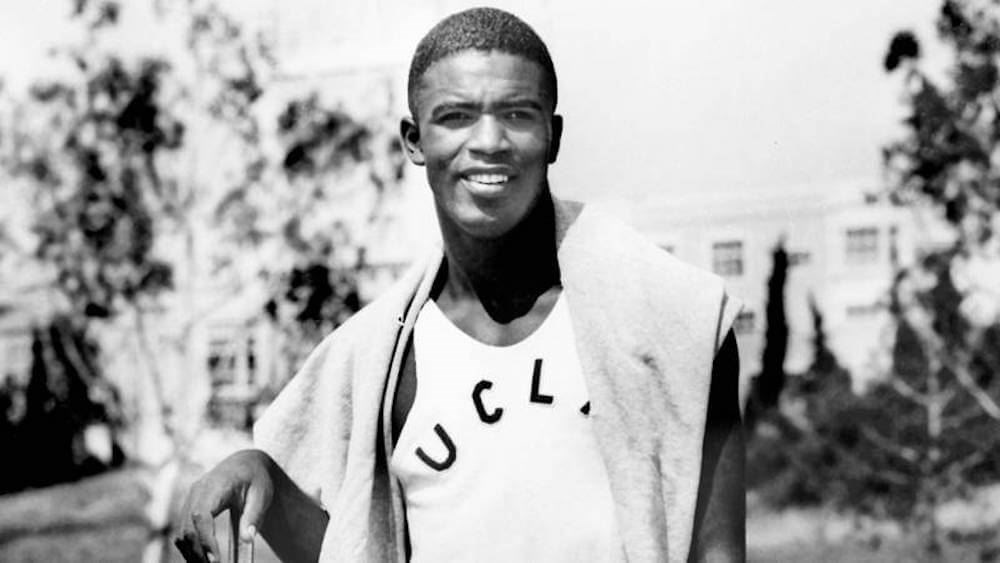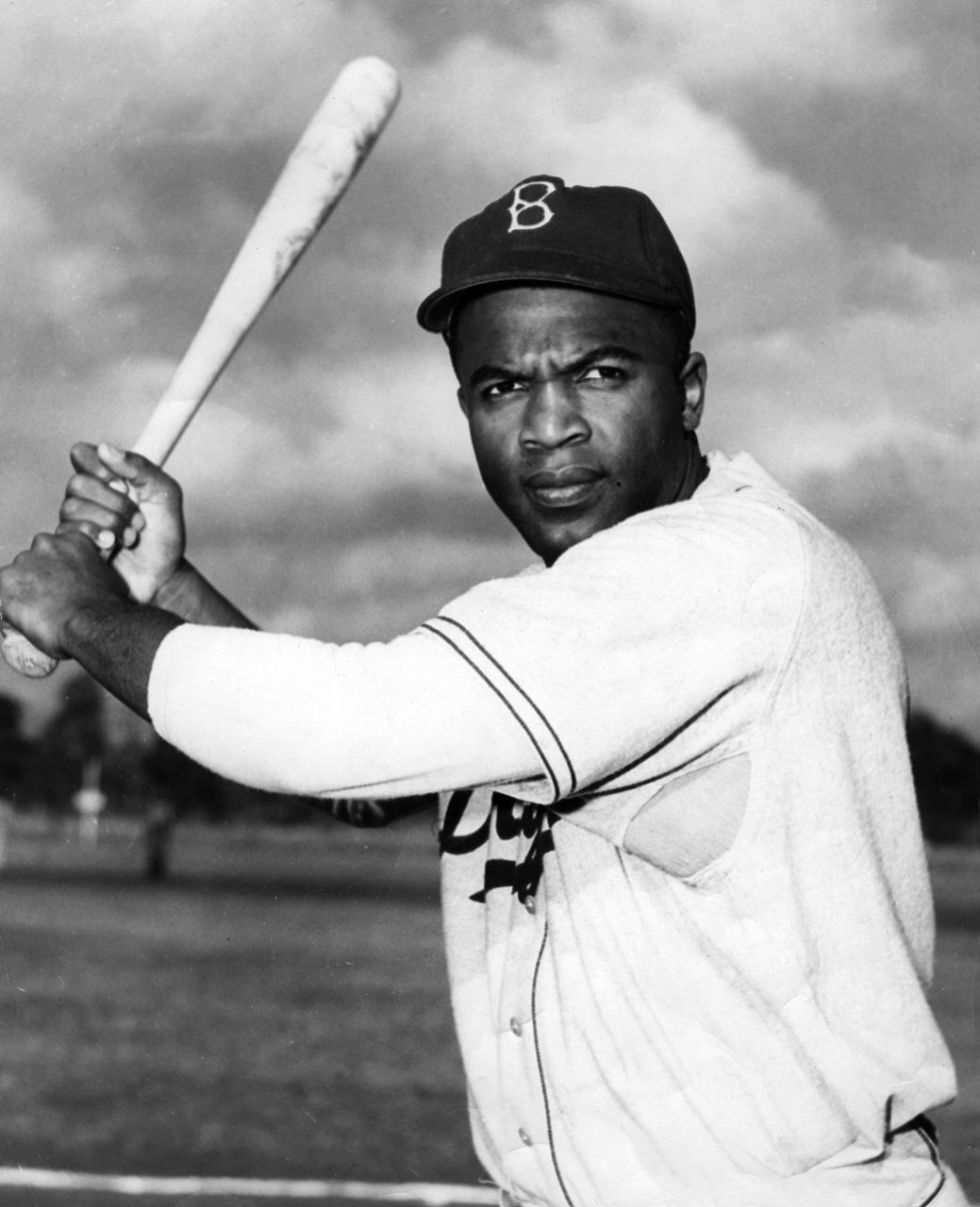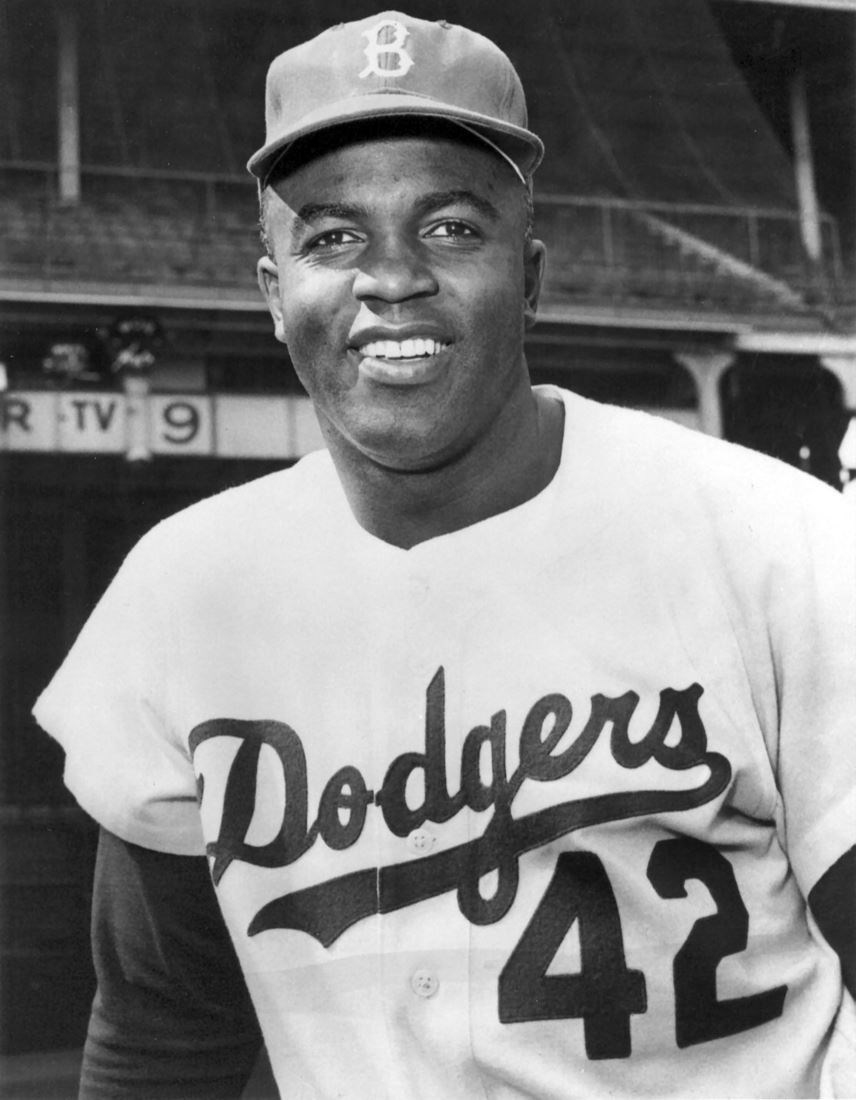So Can I
“Be the change you wish to see in the world” (Gandhi). This is a quote that is often overused, but embodies a valuable truth. If one is desiring a change in his broken world, then he ought to seek that change himself. Heroes create change. One can be thought of as heroic when his actions leave someone else desiring to also make a difference. A true hero possesses courage, and utilizes it when necessary, no matter the circumstances. He not only exhibits external courage, but also internal courage. A hero is always willing to serve for something greater than himself. Heroism can be found in a teenager who stands up to a bully, a young boy who uses his allowance to feed the homeless, and a girl who chooses to eat lunch with a boy who has no friends. An act of heroism can be found in various situations, and no act is minuscule. A hero worthy of appreciation not only notices that change needs to be made, but also dares to take the initiative to make that change. In the article, Review of Superman on the Couch: What Superheroes Really Tell Us about Ourselves and Our Society, James Fleming reiterates that a hero is the face of change: “...some sort of strength of character (though it may be buried), some system of positive values, and a determination to, no matter what, protect those values ... the superhero-more than even the ordinary fictional hero-has to represent the values of the society that produces him." A hero fights for his beliefs, and possesses the determination to fight for a change. He leads the way for future changes. Furthermore, his personality sets him apart because he is more compassionate than an average being. He does not have to be rich, talented, or have a high status. A hero refuses to let the world change him but changes the world one step at a time. He leaves a mark but not in pursuit to boost his own popularity. Instead, he works to transform the world into a more pleasant place.
 Robinson, during his college years at UCLAScouteeNo one could have guessed that the boy who was once looked down upon and deprived of fair opportunities because of his race would become the first African-American to ever play Major League Baseball - Jackie Robinson. Born on January 31, 1919 in the small town of Cairo, Georgia, Robinson’s life most definitely began unfairly. His father forsook his family when Jackie was as young as six months old, which taught him to take matters into his own hands from a young age. However, Robinson's mother served as his first firm example of courage through the actions of raising him and his four siblings on her own. He was exposed to racism at an early age, yet he never allowed it to become a hindrance in the pathway of his goals. He attended college at UCLA where he dominated in four sports. After college, the U.S. Army recruited Robinson, but they promptly discharged him after he refused to follow segregation rules. However, his rule-breaking actions revealed that Robinson consistently stayed true to his values.. His astounding performances in the Negro Leagues caught the attention of the Dodgers manager, Branch Rickey, and Robinson was soon signed. He represented all African Americans as he broke baseball’s color barrier and continued to persevere to make this impact until the day of his death, October 24, 1972. Authentically living up to the title of a hero, Jackie Robinson not only exhibited unquantifiable courage as he persevered through illimitable harassment without retaliating, but also selflessly thrived to eradicate the prejudicial society that victimized his black brothers and sisters.
Robinson, during his college years at UCLAScouteeNo one could have guessed that the boy who was once looked down upon and deprived of fair opportunities because of his race would become the first African-American to ever play Major League Baseball - Jackie Robinson. Born on January 31, 1919 in the small town of Cairo, Georgia, Robinson’s life most definitely began unfairly. His father forsook his family when Jackie was as young as six months old, which taught him to take matters into his own hands from a young age. However, Robinson's mother served as his first firm example of courage through the actions of raising him and his four siblings on her own. He was exposed to racism at an early age, yet he never allowed it to become a hindrance in the pathway of his goals. He attended college at UCLA where he dominated in four sports. After college, the U.S. Army recruited Robinson, but they promptly discharged him after he refused to follow segregation rules. However, his rule-breaking actions revealed that Robinson consistently stayed true to his values.. His astounding performances in the Negro Leagues caught the attention of the Dodgers manager, Branch Rickey, and Robinson was soon signed. He represented all African Americans as he broke baseball’s color barrier and continued to persevere to make this impact until the day of his death, October 24, 1972. Authentically living up to the title of a hero, Jackie Robinson not only exhibited unquantifiable courage as he persevered through illimitable harassment without retaliating, but also selflessly thrived to eradicate the prejudicial society that victimized his black brothers and sisters.
 Jackie Robinson, taking a swing in his Brooklyn Dodgers uniformSociety for American Baseball ResearchIn a white man’s game, Robinson relentlessly displayed courage through gruesome racism when substantiating that the color of one’s skin should not influence their treatment. In the movie 42 director Brian Helgeland introduces Branch Rickey, the Dodger’s manager, and demonstrates the imperatives the player he would soon choose must possess: “I want a player who’s got the guts not to fight back. People aren’t gonna like this. They’re gonna do anything to get you to react. Echo a curse with a curse, but they’ll hear only yours. Follow a blow with a blow, they’ll say the Negro lost his temper, the Negro does not belong”(0:11:13- 0:11:35). Rickey searched for a player with “the guts not to fight back” or a player courageous enough to not retaliate. As Rickey’s selected player, Robinson would be the only black player on the field, and kept his cool at all times. Even if Robinson would “echo” the actions of a white player, only his actions would be perceived as “wrong” because of his color. Rickey’s strict requirements combined with Robinson’s determination to desegregate baseball, he courageously endured through all abuse. Branch Rickey’s foreshadowing came true as Robinson’s experiences in the Major Leagues proved to be grueling: “Robinson's imminent promotion to the Dodgers in 1947 triggered an unsuccessful petition drive on the part of southern players to keep him off the team. In the early months of the season, beanballs, death threats, and rumors of a strike by opposing players swirled around Robinson. Through it all Robinson paraded his excellence. An electrifying fielder and base runner as well as an outstanding hitter, Robinson's assault on baseball's color line captured the imagination of both black and white Americans” (Tygiel). Although he had to tackle incessant loads of problems, Robinson still managed to “parade his excellence” or flaunt, in this instance, by quietly keeping his dignity while proving himself as an exquisite ballplayer. He managed to obtain a spot on the roster, but more importantly, Jackie Robinson accepted criticism with remarkable stoicism. This bravery was of such a high degree that it is represented by such a powerful word as “assault.” His collected conduct shattered baseball’s unwritten barricade which advocated whites, and he left both blacks and whites in awe. A dream of a changed world without prejudice drove Robinson’s courageous choices to contain himself throughout every difficult obstacle for the sake of benefitting future black players.
Jackie Robinson, taking a swing in his Brooklyn Dodgers uniformSociety for American Baseball ResearchIn a white man’s game, Robinson relentlessly displayed courage through gruesome racism when substantiating that the color of one’s skin should not influence their treatment. In the movie 42 director Brian Helgeland introduces Branch Rickey, the Dodger’s manager, and demonstrates the imperatives the player he would soon choose must possess: “I want a player who’s got the guts not to fight back. People aren’t gonna like this. They’re gonna do anything to get you to react. Echo a curse with a curse, but they’ll hear only yours. Follow a blow with a blow, they’ll say the Negro lost his temper, the Negro does not belong”(0:11:13- 0:11:35). Rickey searched for a player with “the guts not to fight back” or a player courageous enough to not retaliate. As Rickey’s selected player, Robinson would be the only black player on the field, and kept his cool at all times. Even if Robinson would “echo” the actions of a white player, only his actions would be perceived as “wrong” because of his color. Rickey’s strict requirements combined with Robinson’s determination to desegregate baseball, he courageously endured through all abuse. Branch Rickey’s foreshadowing came true as Robinson’s experiences in the Major Leagues proved to be grueling: “Robinson's imminent promotion to the Dodgers in 1947 triggered an unsuccessful petition drive on the part of southern players to keep him off the team. In the early months of the season, beanballs, death threats, and rumors of a strike by opposing players swirled around Robinson. Through it all Robinson paraded his excellence. An electrifying fielder and base runner as well as an outstanding hitter, Robinson's assault on baseball's color line captured the imagination of both black and white Americans” (Tygiel). Although he had to tackle incessant loads of problems, Robinson still managed to “parade his excellence” or flaunt, in this instance, by quietly keeping his dignity while proving himself as an exquisite ballplayer. He managed to obtain a spot on the roster, but more importantly, Jackie Robinson accepted criticism with remarkable stoicism. This bravery was of such a high degree that it is represented by such a powerful word as “assault.” His collected conduct shattered baseball’s unwritten barricade which advocated whites, and he left both blacks and whites in awe. A dream of a changed world without prejudice drove Robinson’s courageous choices to contain himself throughout every difficult obstacle for the sake of benefitting future black players.
When Robinson broke baseball’s color barrier, he selflessly directed all public attention to terminating prejudice and liberating his black brothers and sisters. Robinson always thought of methods to direct his spotlight onto others in need, especially as he worked to eliminate prejudice in not only the baseball society, but also in all of American society: “Robinson viewed his sports celebrity as a platform from which to challenge American racism” (Dreier). Every move Robinson made magnified, as he was always the odd man out. Nonetheless, Robinson took advantage of what he could get. He was placed on a “platform” but in lieu of using that platform for his own popularity and publicity, Robinson selflessly utilized it to put an end to the prejudice. He used his experiences to ultimately benefit others. No matter the circumstances, Jackie Robinson held true to his morals in pursuit of winning the battle against prejudice: “I never believed in backing out just because things weren’t the best they could be. In civil rights I worked hard to do as much as I could for my people.”(Robinson). Things were never the best they could be for Robinson. On a daily basis endless amounts of hate and abuse battered him in the face. The phrase “I never believed in backing out because things weren’t the best they could be” shows that Jackie never let anything get in his way. His selfless determination became eminently apparent as he strived to do every possible task he could to free his people. Jackie Robinson never thought of how his accomplishments benefited himself, but only how they could benefit those around him : the true meaning of selflessness.
 Robinson sharing a smile with the camera, wearing legendary # 42SBNationThroughout his humble life, Jackie Roosevelt Robinson courageously and selflessly endured through unjust abuse in order to liberate those imprisoned by prejudice. Robinson’s high rankings in batting averages, stolen bases, and his Rookie of the Year Award are not merely what make him a hero. He is a hero because he was the first to bring about a change in a strictly white baseball league. In order to reach his goals, Robinson internally fought long and hard. Through verbal, physical, and emotional abuse, he kept silent to successfully integrate baseball. He endured through it all to benefit others and give them the freedom they deserved. Jackie Robinson never acted out of selfishness, but only out of selflessness to enhance the lives of others. He inspires me to choose to be the teenager who stands up to bullies. He has enlightened me to choose to be altruistic and feed the homeless. Because of him, I am the girl who eats lunch with those who have no friends. This past week, Jackie’s legacy influenced me as I chose to escape my typical comfort zone and sit with the reclusive students during lunch. The experiences left my heart full. I dedicate my life to being more like Jackie Robinson: courageous and selfless. Because if Jackie managed to do it, so can I. If Jackie dedicated his life to serving others first, so can I. He left his mark on the world and inspires me to take action and leave my mark as well. Though not only that, Robinson inspires me to disregard all stereotypes placed on me because of my ethnicity. I can relate to him because I too am thought of as ineffectual because I am hispanic. This world tells me I will never be smart enough, or ever amount to success. However, because of Robinson’s bravery, I will no longer allow phrases like “hispanics don’t go to college” categorize me. I will not let prejudice define me. His life acts as a guide for me to aim to possess the mindset that stereotypes do not define me; therefore, I too will surpass the archetypes that our society has set for me. When I think about Jackie Robinson, I think about how his courage and selflessness allowed him to persevere through hardships. I think about how many lives he has changed, mine being one. And if Jackie Robinson left an impact, so can I.
Robinson sharing a smile with the camera, wearing legendary # 42SBNationThroughout his humble life, Jackie Roosevelt Robinson courageously and selflessly endured through unjust abuse in order to liberate those imprisoned by prejudice. Robinson’s high rankings in batting averages, stolen bases, and his Rookie of the Year Award are not merely what make him a hero. He is a hero because he was the first to bring about a change in a strictly white baseball league. In order to reach his goals, Robinson internally fought long and hard. Through verbal, physical, and emotional abuse, he kept silent to successfully integrate baseball. He endured through it all to benefit others and give them the freedom they deserved. Jackie Robinson never acted out of selfishness, but only out of selflessness to enhance the lives of others. He inspires me to choose to be the teenager who stands up to bullies. He has enlightened me to choose to be altruistic and feed the homeless. Because of him, I am the girl who eats lunch with those who have no friends. This past week, Jackie’s legacy influenced me as I chose to escape my typical comfort zone and sit with the reclusive students during lunch. The experiences left my heart full. I dedicate my life to being more like Jackie Robinson: courageous and selfless. Because if Jackie managed to do it, so can I. If Jackie dedicated his life to serving others first, so can I. He left his mark on the world and inspires me to take action and leave my mark as well. Though not only that, Robinson inspires me to disregard all stereotypes placed on me because of my ethnicity. I can relate to him because I too am thought of as ineffectual because I am hispanic. This world tells me I will never be smart enough, or ever amount to success. However, because of Robinson’s bravery, I will no longer allow phrases like “hispanics don’t go to college” categorize me. I will not let prejudice define me. His life acts as a guide for me to aim to possess the mindset that stereotypes do not define me; therefore, I too will surpass the archetypes that our society has set for me. When I think about Jackie Robinson, I think about how his courage and selflessness allowed him to persevere through hardships. I think about how many lives he has changed, mine being one. And if Jackie Robinson left an impact, so can I.
Works Consulted
Dreier, Peter. “The Real Story of Baseball's Integration That You Won't See in 42.” The Atlantic,
Atlantic Media Company, 11 Apr. 2013,
Goldstein, Warren. “Jackie Robinson.” History.com, A&E Television Networks, 2009,
www.history.com/topics/black-history/jackie-robinson.
Helgeland, Brian, and Thomas Tull. 42.
“Jackie Robinson Breaks Major League Color Barrier.” History.com, A&E Television Networks,
www.history.com/this-day-in-history/jackie-robinson-breaks-major-league-color-barrier.
"Jackie Robinson." Gale Student Resources in Context, Gale, 2017. Student Resources In
Context,https://link.galegroup.com/apps/doc/UBCEYO605085353/SUIC?u=powa9245&sid=SUIC&xid=2c4a59a1. Accessed 5 Apr. 2018.
Murrow, Edward R. “This I Believe.” 1952. Robinson discusses his fight against prejudice.
Robinson, Jackie, and Alfred Duckett. I Never Had It Made. HarperCollins Publishers, 1995.
Tygiel, Jules. "Jackie Robinson." Encyclopedia of African-American Culture and History,
Macmillan Reference USA, 2006. Student Resources In Context,
https://link.galegroup.com/apps/doc/K3444701098/SUIC?u=powa9245&sid=SUIC&xid=d0a65c99. Accessed 29 Apr. 2018.
Page created on 5/29/2018 4:33:23 AM
Last edited 5/29/2018 5:08:39 AM
